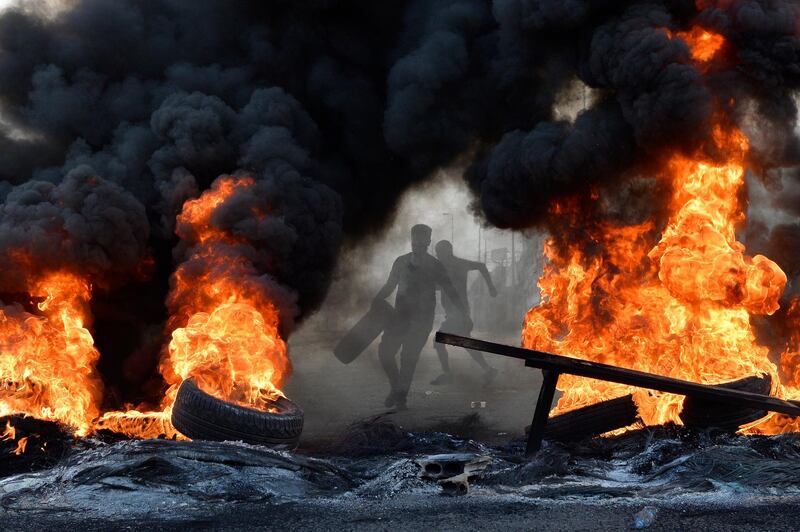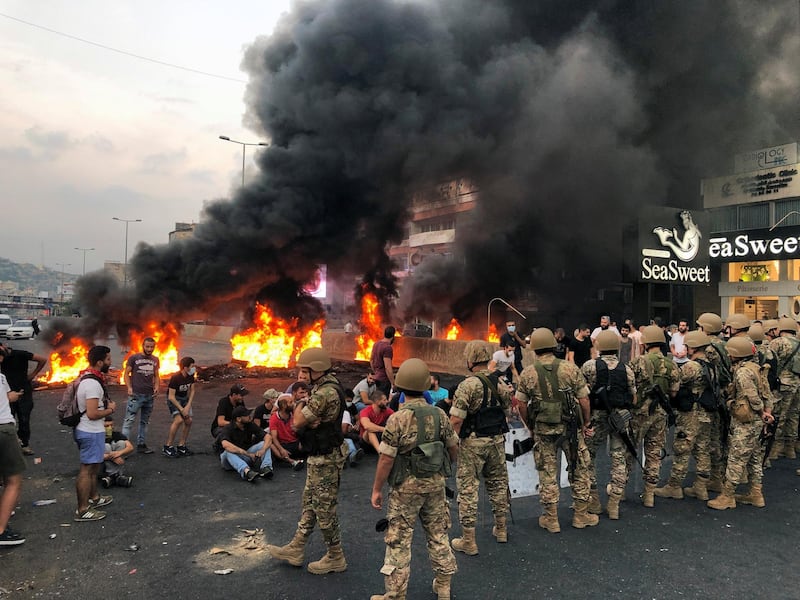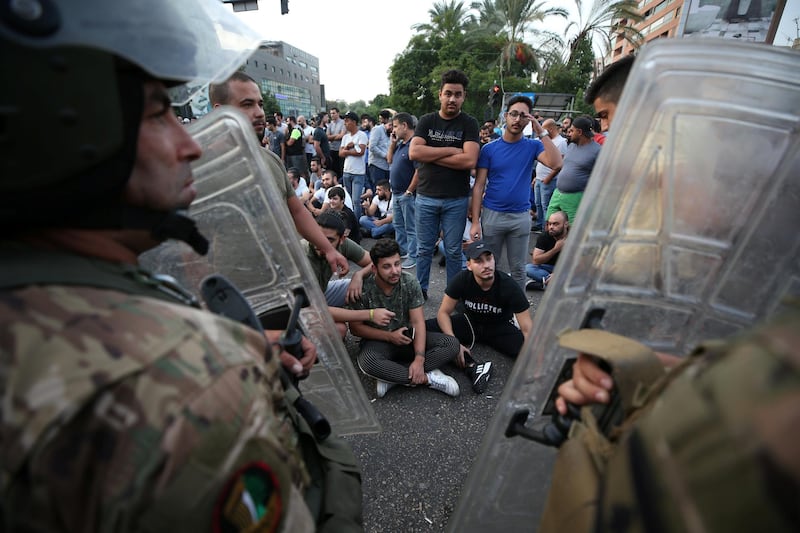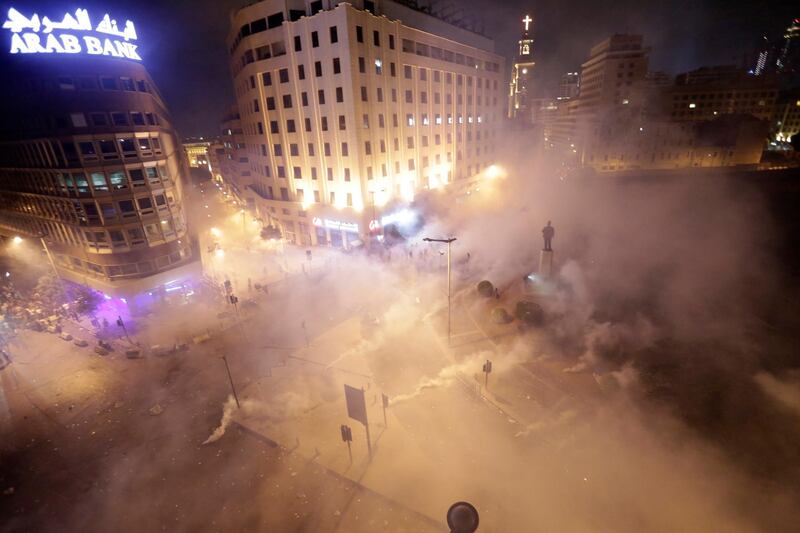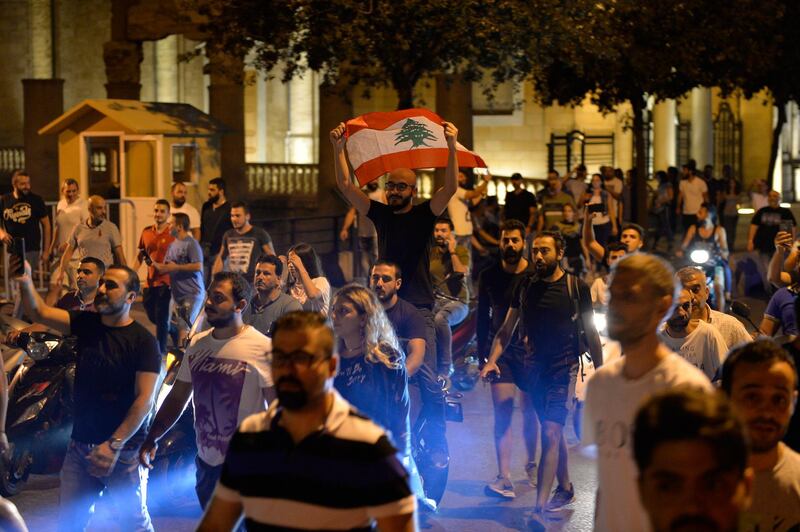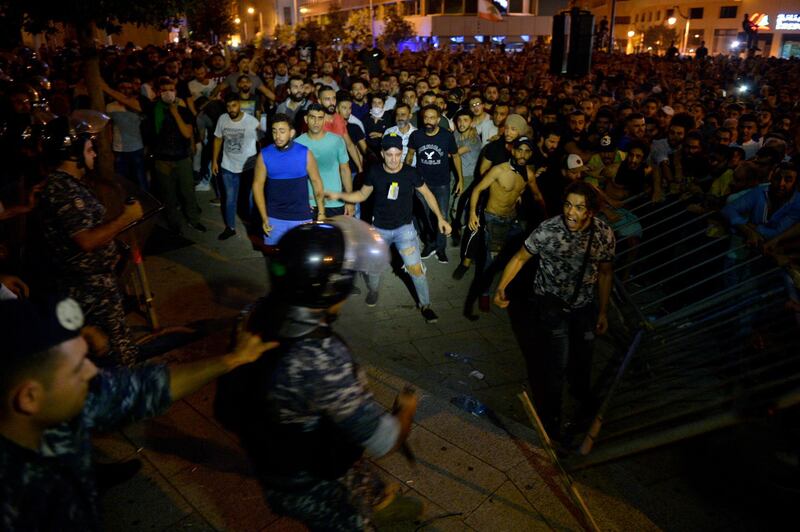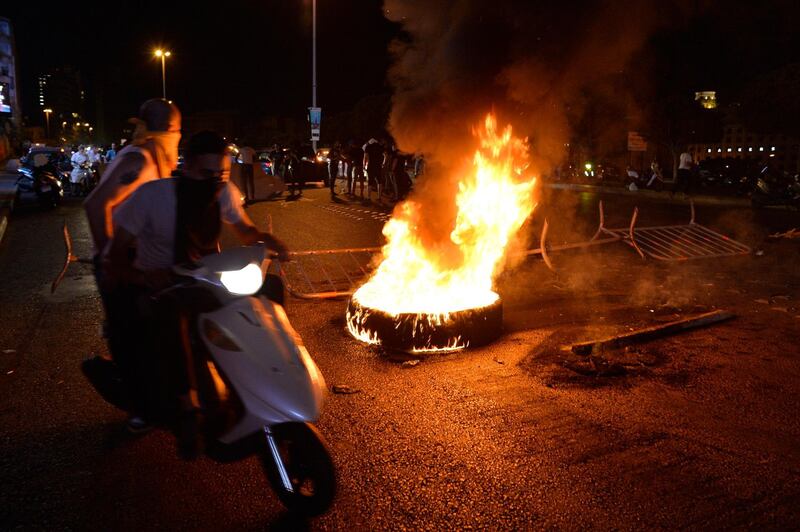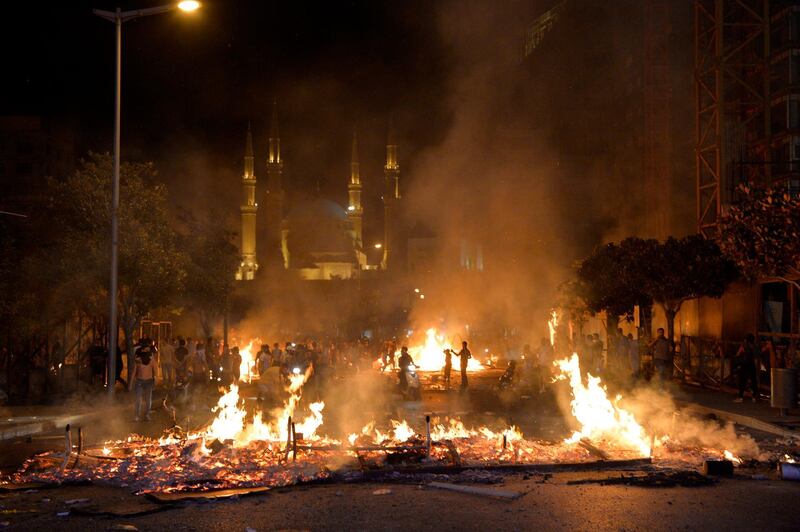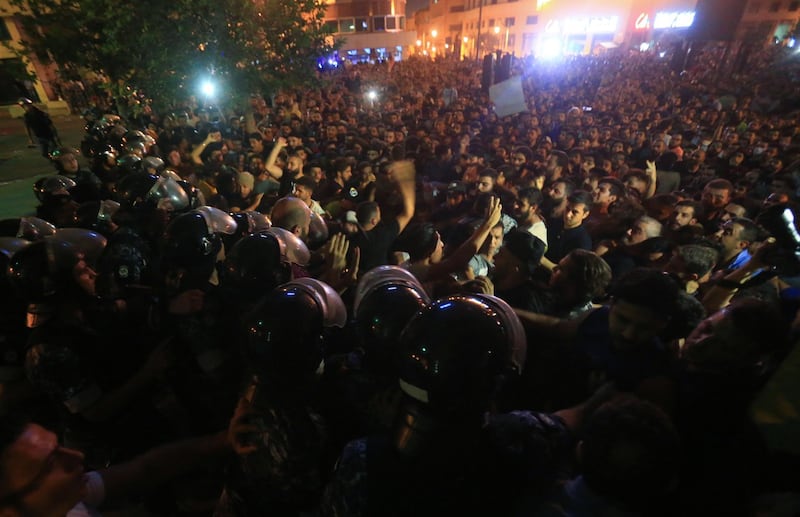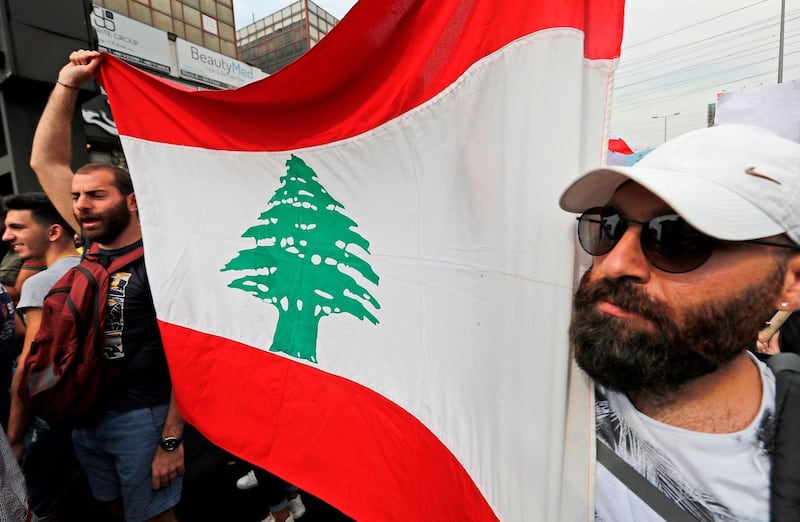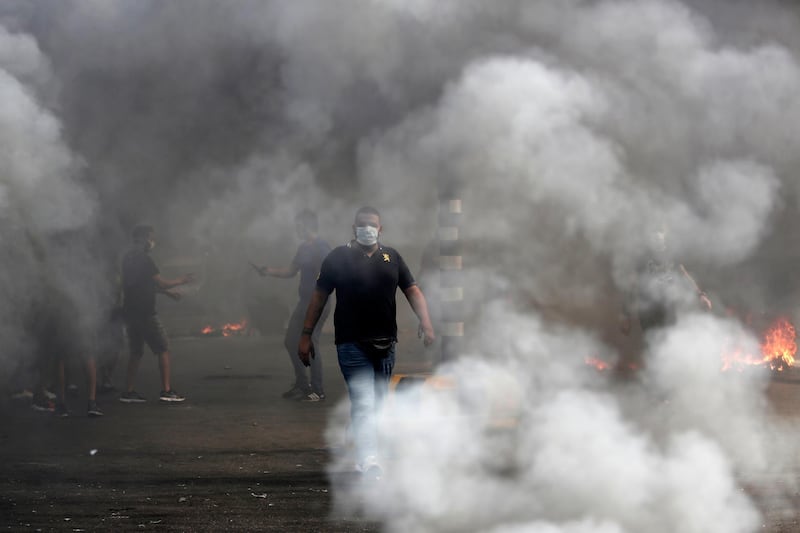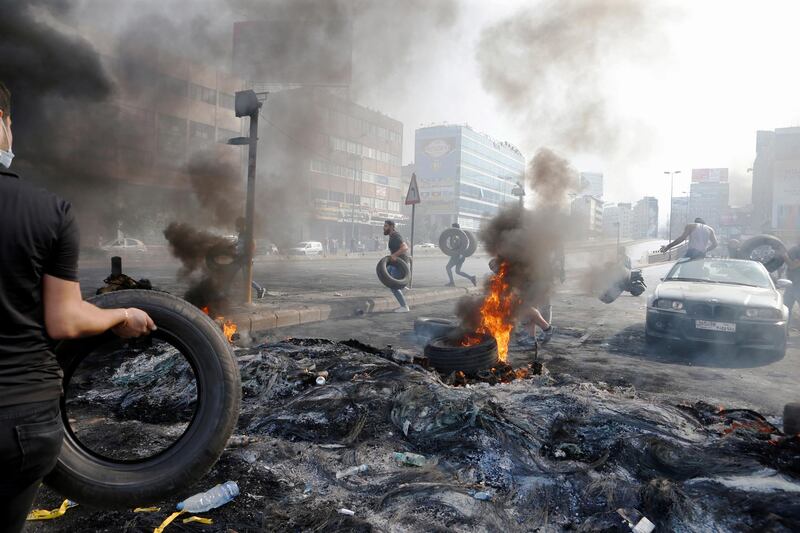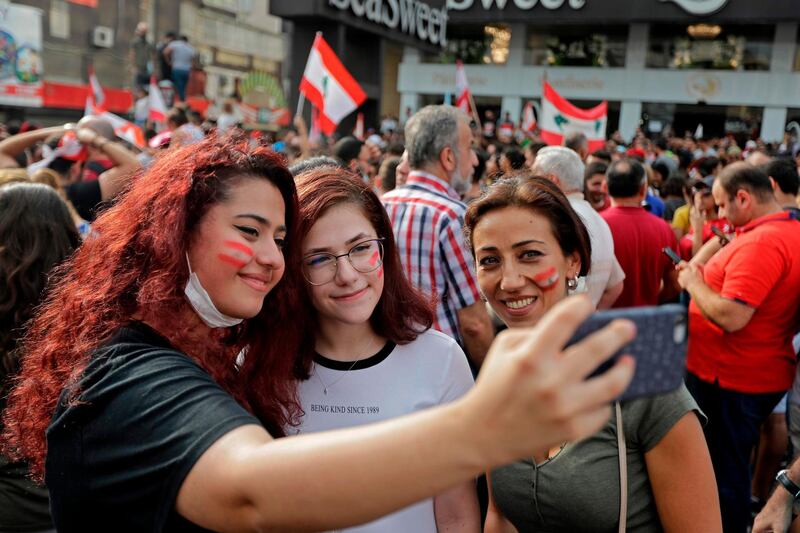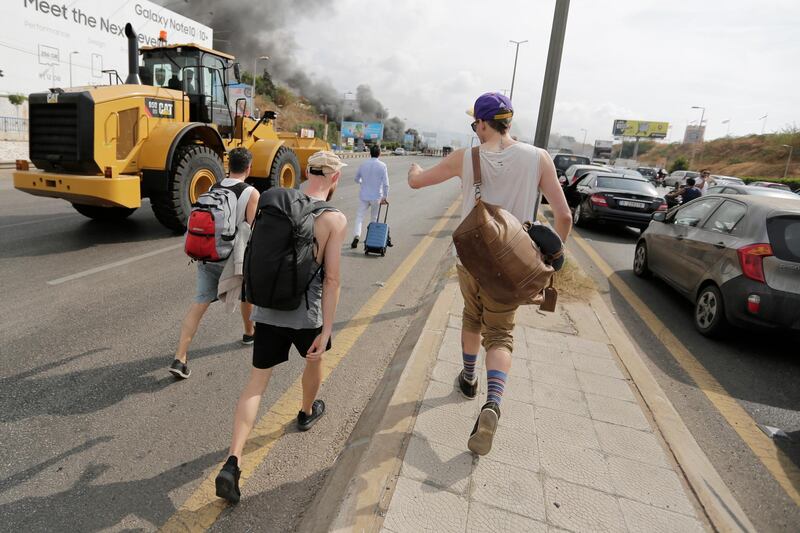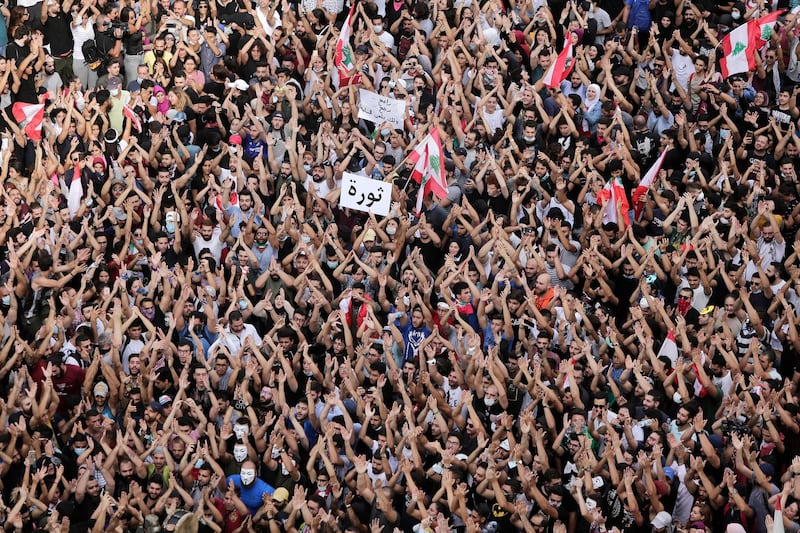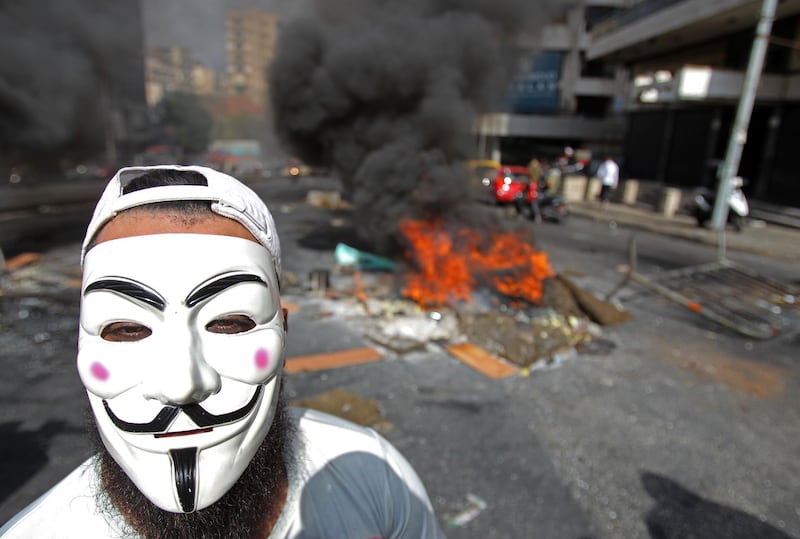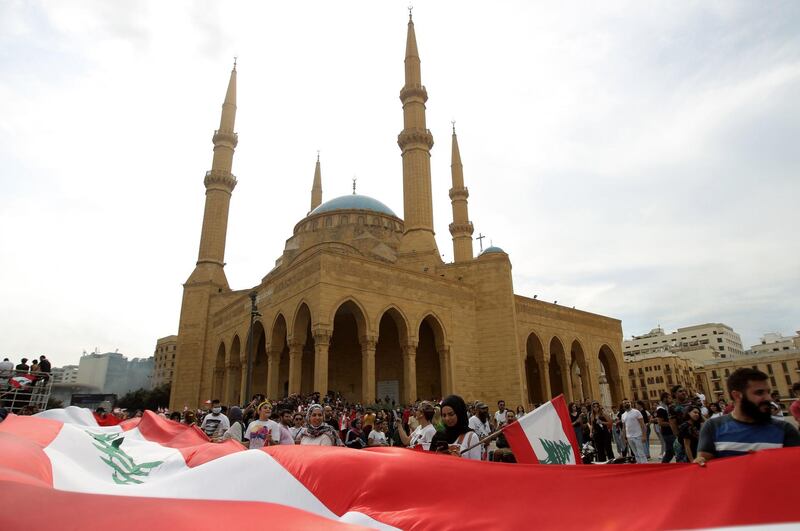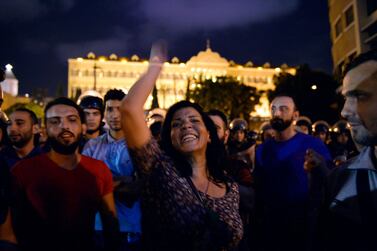The Lebanese government faced calls to resign on Thursday after thousands of furious demonstrators took to the streets across the country to protest dire economic conditions.
Public anger has simmered since parliament passed an austerity budget in July to help trim a ballooning deficit and flared on Thursday over plans to tax calls on messaging applications, forcing the government to axe the unpopular measure.
Protesters in the capital blocked the road to the airport with burning tyres, prompting a heavy deployment by security forces.
Schools and banks remained closed on Friday as protesters continued to block roads in some areas.
On Thursday, demonstrators across the country chanted the popular refrain of the 2011 Arab Spring protests: "The people demand the fall of the regime."
Near government headquarters in central Beirut, violent confrontations broke out between protesters and security forces as demonstrators tried to storm the building.
Security forces fired tear gas to disperse protesters, after the Internal Security Forces (ISF) said clashes wounded 40 of its members.
Protesters also sparked a large blaze near the Mohammad al-Amin mosque in Downtown Beirut.
"We elected them and we will remove them from power," one protester told a local TV station.
"What unites us is the standard of living - we are all destroyed," said another.
Demonstrations erupted in the capital Beirut, its southern suburbs, the southern city of Sidon, the northern city of Tripoli and the Bekaa Valley, after a government decision to tax calls made on messaging applications sparked outrage.
The far-reaching demonstrations forced the government to retreat on its decision to approve the tax late on Thursday, Telecommunications Minister Mohammad Choucair said.
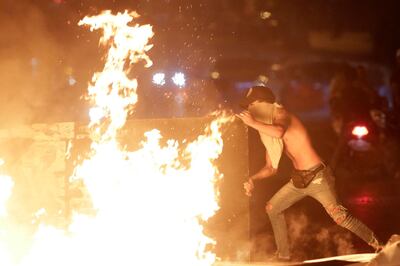
The cash-strapped Lebanese government had proposed a 0.22 cent levy on all calls made through WhatsApp and other Voice over Internet Protocol services.
Mr Choucair confirmed the proposal to tax calls made through WhatsApp, Facebook, FaceTime and other popular apps, with a monthly cap of $6, after the Cabinet discussed it on Thursday.
The government is discussing ideas for additional taxes for the 2020 budget to bring down the world’s third-highest debt-to-GDP level.
Lebanon owes $86 billion, or 150 per cent of GDP, and is trying to introduce measures to reduce the debt and unlock international aid that is tied to reforms.
Government debt has been downgraded by ratings agencies and the country is running low on US dollars, with withdrawals limited.
Experts warn the country is facing a financial crisis and Prime Minister Saad Hariri says fixing the economy is his main priority.
In 2017, the French government convened a conference during which countries pledged $11bn to rebuild Lebanon’s infrastructure. That money was contingent on the country introducing reforms.
The Lebanese government is still trying to pass the needed legislation and cut the deficit to access the money.
Among other Cabinet proposals on Thursday was an increase in VAT by two points in 2021 and again in 2022, bringing it to 15 per cent.
Cabinet endorsed other proposals on Thursday, including an increase on the levy for tobacco products and boosted security at borders to clamp down on smuggling.
But the proposal to tax internet calls was immediately criticised.
“The people will not pay a single pound on WhatsApp's service, which is their vent to swear at some politicians without being tracked,” MP Paula Yacoubian said.
Ms Yacoubian urged the Cabinet to back off immediately before they become a “shameful charade”.
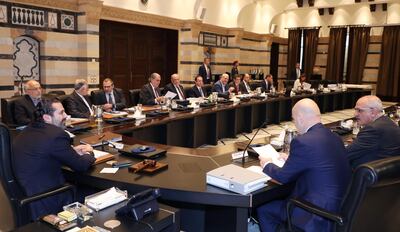
“But you are, as expected, ignoring all warning signs and trying to impose a tax on people instead of creating productive services," she said.
"Doing the same over and over again will lead to the same result – theft and squander.”
Many Lebanese took to social media to condemn the proposal.
Roland Aboujaoude, a lecture at Usek University, tweeted a new logo for WhatsApp in Lebanon.
It showed the classic green box with a phone in a speech bubble above the altered app name, now spelt “What$App”.
Lebanon's Whatsapp New Logo #whatsapp #LBCINews @LBCI_NEWS pic.twitter.com/gHloI7M5G7
— roland aboujaoude (@crazywiser) October 17, 2019
Meanwhile, Mohammed Hijazi asked on Twitter why the government was planning to impose an extra fee when Lebanese phone bills were already so high.
Ministers are trying to impose tarrifs on Whatsapp calls in Lebanon. Some reporting 20¢ on the first call a day!
— Mohammad Hijazi (@mhijazi) October 17, 2019
We are already the most expensive call and data country in the world with a shitty service!
ناقصو بعد عالشعب سرقة؟ #ثوروا
Lebanese telecoms bills are relatively high compared to other regional countries, with 500 megabytes costing $10 a month, 10 gigabytes $33 and 100GB $109 with MTC Touch, one of the two state-licensed networks.
Calls and other services are charged separately.
Others asked how the tax would be enforced, for example, if someone without a Lebanese Sim card used WhatsApp over Wi-Fi.
Lebanese licensed telecoms companies, MTC Touch and Alga, generate hundreds of millions a year for the government, which is used to cover the budgets of municipalities and other services.
The companies reportedly paid the Lebanese government $1.2 billon in 2015.
